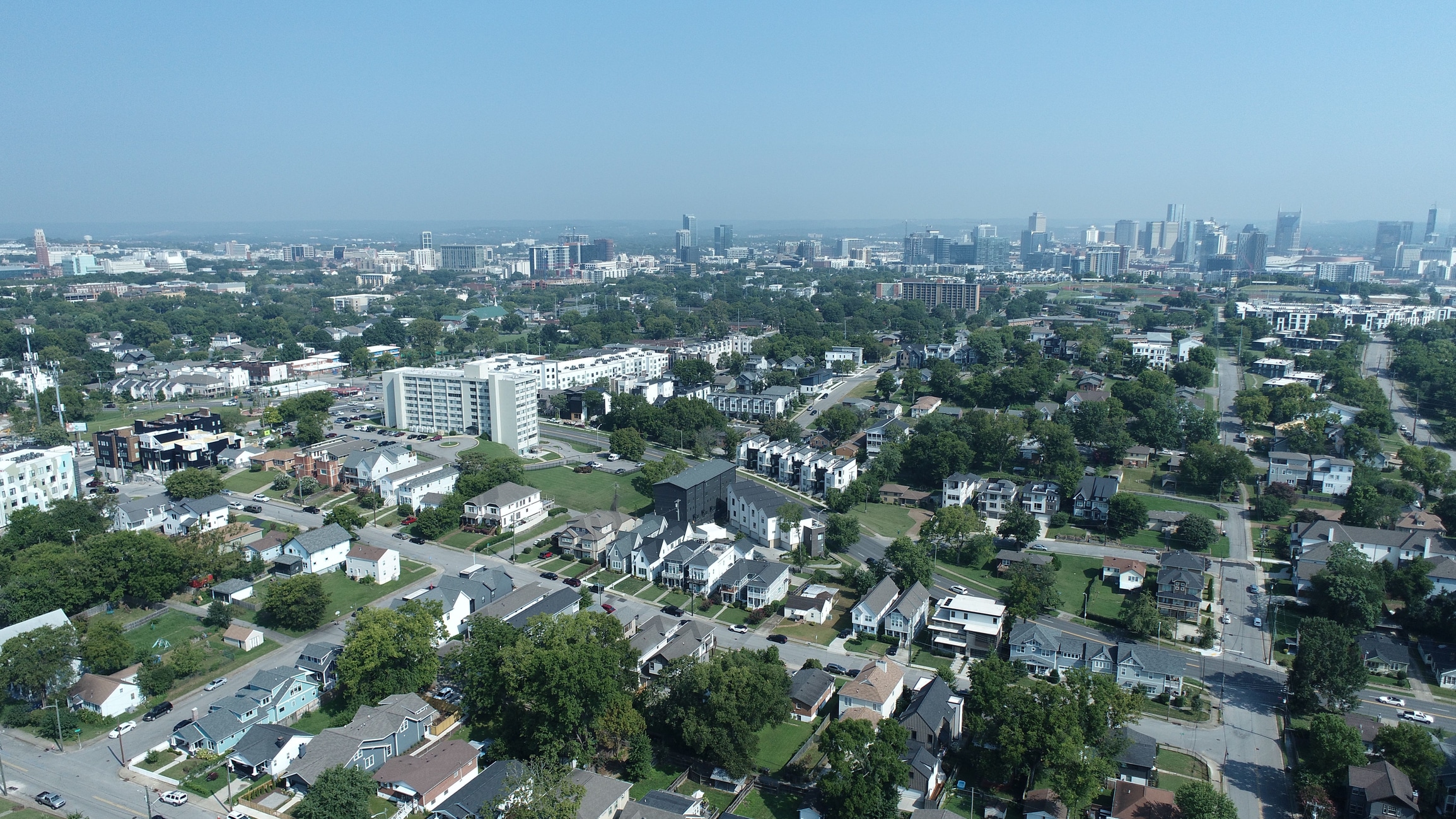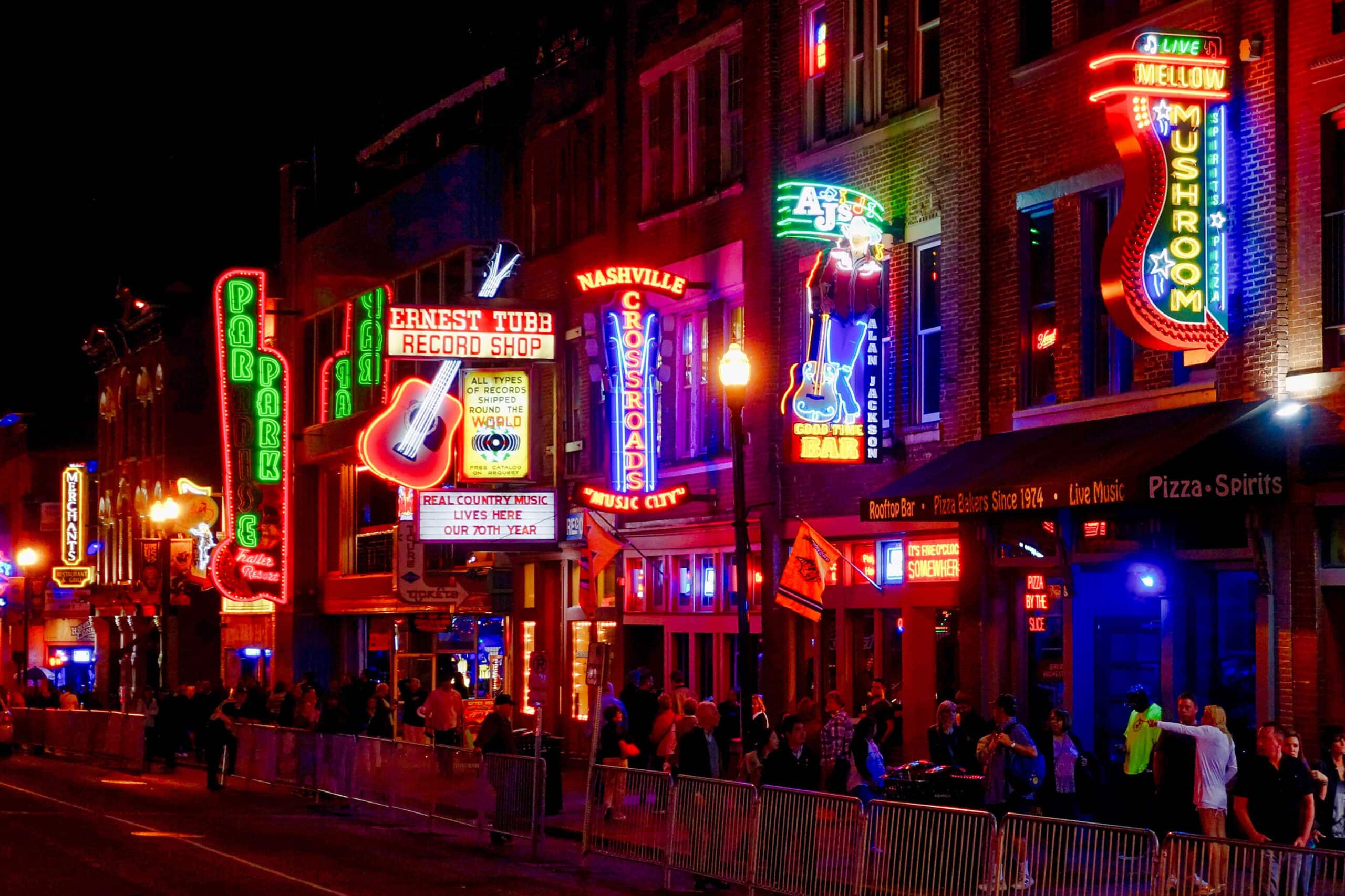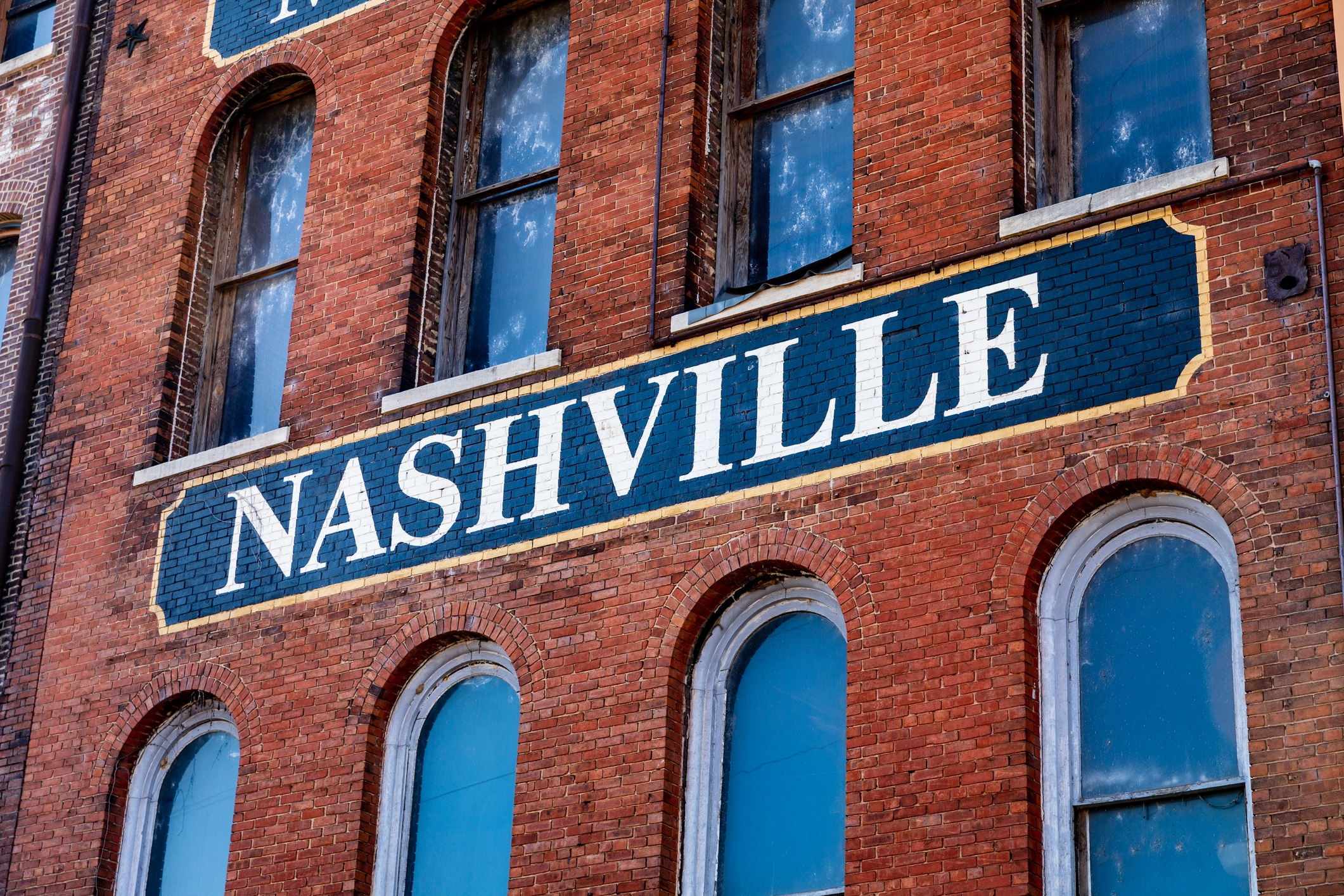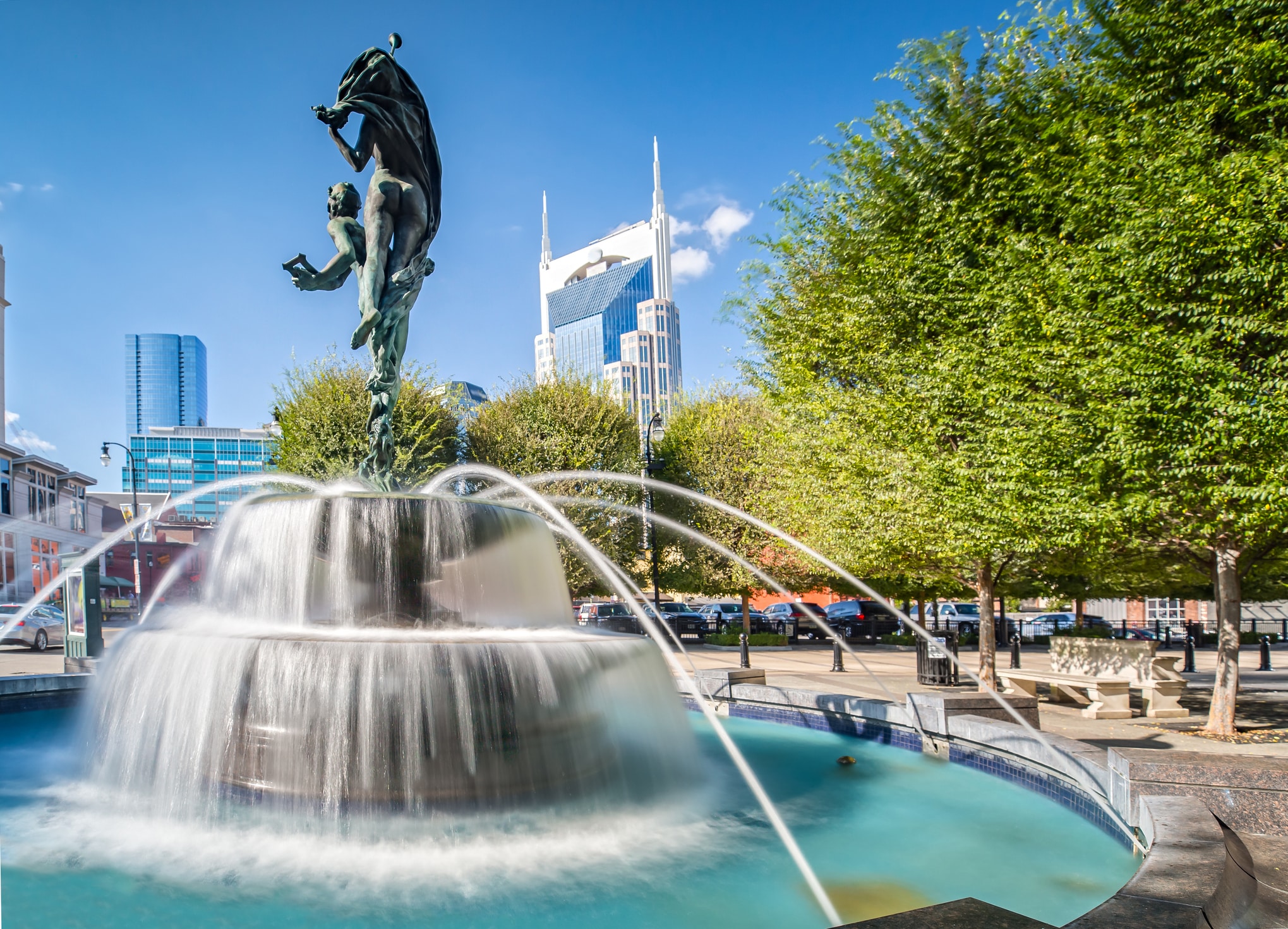(Updated December 31, 2024)
Can you hear that? The melodious voice beckoning you to move to Nashville, Tennessee? This Southern charmer is known as “Music City” for a reason, and transplants from across the U.S. are answering its siren call. Over 1.3 million residents live in this metro area, making it one of the 10 fastest booming cities nationwide. But before you place those boots on the ground, let’s explore what you need to know about living in Nashville, TN.
Nashville is the epicenter of American country music, with iconic landmarks such as the Ryman Auditorium, Grand Ole Opry, and Country Music Hall of Fame — plus 180 more live performance venues in the downtown core.
But you don’t have to be a songbird to feel at home. Sports fans can cheer on the NFL Titans at Nissan Stadium or NHL Predators at Bridgestone Arena. Culture buffs can enjoy over 50 local museums and art galleries. If you’re a foodie, Nashville’s vibrant culinary scene (hot chicken, anyone?) hits all the right notes, too.
Ready to start packing for your next chapter in Music City? As with any new destination, there are some upsides and downsides to consider when moving to Nashville, but this guide will help you make sure Nashville is the right fit for you, and ensure a smooth transition. From the most desirable Nashville neighborhoods, to the pros and cons of living in Nashville, here’s what to keep in mind as you put down roots.
Quick Facts About Nashville
- Population: 1,333,000 (1.37% increase from 2023)
- Cost of living: 1% lower than national average
- Climate: 30–40 degrees in winter; 80–100 degrees in summer
- Home value: $429,694 on average
- Rental price: $1,779 on average
- Median age: 34 years old for men; 35 years old for women
- Job market index: 6.8/10 (above national average)

7 Things to Know About Living in Nashville
Whether you’re moving to Nashville from just a couple states over, or you’re about to embark on a long-distance move across the country, let’s talk about what to expect before you arrive. The more you know upfront, the easier it will be to embrace living in Nashville and start reaping all the benefits of that famous Southern hospitality.
1. The cost of living in Nashville is lower than many other cities
While the cost of living in Nashville, TN, is 10 percent higher than the rest of Tennessee, it’s one percent below the national average. This makes it a sought-after destination for transplants from San Francisco, Chicago, New York, and other expensive U.S. cities.
To put this into context, a family who spends about $9,984 a month in San Francisco will spend just $6,900 a month in Nashville. Likewise, someone who earns over $85,000 in San Francisco will only need to earn $50,000 to live comfortably in Nashville.
With that said, the average annual salary in Nashville is at least $73,000 — more than enough for most residents to live on. Nashville’s combined state and local sales tax rate of 9.55 percent is slightly above the national rate, but Tennessee doesn’t charge any income tax, which can help offset the higher sales tax. Overall, it’s an affordable place to call home.
2. Nashville has a mild weather forecast for most of the year
Nashville’s climate is moderately subtropical with about 205 days of sunshine and 49 inches of rain a year. But with that said, living in Nashville, TN, does expose you to all four seasons. Fall ushers in colorful foliage and brisk 50–60-degree temperatures, while the winter months can drop as low as 30 degrees with up to four inches of annual snowfall.
Spring tends to be the rainiest season, and temperatures hover at 60–75 degrees, while the humid summers can reach 80–100 degrees. July is the hottest month, with a heat index often above 100 degrees, so take this into account when planning outdoor activities.

3. Home and rental costs in Nashville can err on the pricey side
According to recent estimates, a single-family home in Nashville costs around $429,684. This reflects a 0.8 percent increase from 2023, and it’s higher than the national average of $359,099. Nashville’s current housing market is inflated because of all the buyers flocking here, but future projections show the median home price declining by .5 percent in 2025.
If you’d rather live in an apartment, the average rental cost in Nashville is $1,779 per month for a one-bedroom unit. This is comparable to the national average of $1,748. Of course, rental prices will vary based on the neighborhood you choose.
Some desirable parts of Nashville such as Donelson and Bellevue tend to be cheaper than the monthly average ($1,493 and $1,696, respectively). But others like Hillsboro Village, Downtown, Midtown, and Wedgewood-Houston are more expensive ($1,989, $2,283, $2,287, and $2,311). Basically, the cost of housing in Nashville is a mixed bag.
4. Nashville’s job market is robust with opportunity for growth
The Nashville metro area ranks among the top five U.S. cities for post-COVID job growth and economic recovery. In fact, Nashville’s unemployment rate is 4.6 percent — notably lower than the current national average of 5.3 percent.
Considering the median household income in this city is $79,367 (compared to the national average of $75,149), living in Nashville can give you a profitable career boost. If you’re moving without a job, there’s no shortage of diverse companies and robust business sectors to explore. The main industries in Nashville include tourism, hospitality, music production, higher education, technology, healthcare, finance, and publishing. Major corporations have regional offices here, too (think: Amazon, Deloitte, PwC, and iHeartMedia).
5. Nashville boasts one of the state’s top-rated school districts
Nashville takes education seriously — in fact, this city offers some of the best public schools and most prestigious universities in Tennessee. Metro Nashville Public Schools rank third in the top 100 U.S. districts for math proficiency growth and sixth for reading proficiency growth in the years since post-COVID academic recovery. Metro Nashville Public Schools also score high in both student diversity and athletic rankings.
In terms of higher education, Nashville is home to several reputable, nationally ranked colleges such as Vanderbilt, Belmont, Lipscomb, and Fisk University (a renowned HBCU). Due to this city’s strong musical influence, these schools offer some of the best vocal performance and music production or business programs in the country.

6. There are plenty of unique attractions to check out in Nashville
Music City ranks among the five most fun places to live in the U.S.—and it’s not at all that hard to see why. There’s an endless amount of activities and attractions to explore within this vibrant urban center.
Here are just a few of the unique local experiences you’ll want to check out upon moving to Nashville (cowboy boots optional, but definitely encouraged!).
- Enjoy all the outdoor recreation. Shelby Park and Bottoms in East Nashville features almost 1,300 acres of hiking trails, sports fields, golf courses, fishing docks, picnic areas, and an interactive nature center along the scenic Cumberland River.
- Catch a live music performance. Ryman Auditorium hosts some of the most iconic country crooners in the Nashville music scene. If you want a more intimate experience, Bluebird Cafe will introduce you to new songwriters and artists as well.
- Root for your favorite sports team. The Tennessee Titans NFL football team plays at Nissan Stadium on the Cumberland River, or you can watch The Predators NHL hockey team at Bridgestone Arena in the heart of Downtown Nashville.
- Dance at a local honky tonk. The Second Fiddle in historic Lower Broadway is one of Nashville’s original honky tonk saloons. From Southern rock and soulful bluegrass to all the latest country music radio hits, this dance floor is always thumping.
- Embrace the Nashville nightlife. L.A. Jackson Bar has been voted Nashville’s Best Rooftop Bar five years in a row. Enjoy a seasonal craft cocktail and a chef selection of gourmet charcuterie, while you overlook the panoramic urban skyline.
- Savor the exceptional food scene. Party Fowl has been serving traditional Nashville hot chicken for more than 10 years. Whether you want a mild spice or “Poultrygeist”- level heat, there’s something for everyone on this irresistible menu.
- Immerse yourself in arts and culture. Frist Art Museum curates immersive, multimedia exhibits from all over the world, while the monthly WEHO Art Crawl exposes you to more than a dozen local galleries and talented Nashville-based creators.
- Check out all the seasonal festivals. Nashville offers community events all year long, from Dine Nashville Restaurant Week in February and Nashville Comedy Festival in April, to CMA Fest in June and African Street Festival in September.
7. The best neighborhoods in Nashville have so much to offer
Now that you understand what makes this city so special, let’s talk about the best places to live in Nashville. Where you choose to settle will ultimately come down to preference, but with over 100 residential areas in Music City, there’s a lot of ground to cover.
Here are three of the best neighborhoods in Nashville to help narrow down your search:
Midtown Nashville
If you’re looking for an urban vibe with high-rise apartments, trendy nightlife hotspots, and eclectic dining concepts, Midtown is the neighborhood for you. This walkable area places you just minutes away from Music Row and the Downtown business district, making it an ideal choice for young professionals and musicians or creatives.
Hillsboro Village
Nestled right between Belmont and Vanderbilt Universities, Hillsboro Village tends to attract college students who enjoy the local coffee shops, boutiques, indie theaters, and vintage markets close to campus. The cozy historic bungalows and access to lush outdoor green spaces lend Hillsboro Village a family-oriented feel as well.
Donelson
About 10 miles east of the downtown core, Donelson is one of the more suburban Nashville neighborhoods—but that doesn’t mean it’s any less exciting. Situated along the Cumberland River, Donelson is home to the famous Grand Ole Opry and the expansive Opry Mills retail center with more than 200 stores, restaurants, wellness services, and entertainment venues. This safe, affordable community is perfect for young families.

Pros and Cons of Living in Nashville
With its flourishing economic revitalization, thrilling entertainment options, and wide variety of neighborhoods to choose from, Nashville is undoubtedly a good place to live. But as with any urban destination, moving to Nashville comes with some clear pros and cons. Here are the main benefits—and potential drawbacks—to be aware of.
1. Pros of living in Nashville
- The entertainment is unmatched. You won’t run out of fun activities around here, from live music and sports teams, to restaurants and nightlife.
- The Southern hospitality is real. The locals are friendly, and the community events reflect a welcoming, inclusive atmosphere. Family-oriented attractions and top schools make Nashville a fantastic place to raise kids, too.
- The quality of living is excellent. Nashville boasts a low unemployment rate, diverse job market, no income taxes, and an affordable cost of living.
2. Cons of living in Nashville
- The public transportation is hit or miss. Nashville only has one public transit system called WeGo. This bus and train service can help you navigate the main urban core, but most of the large metro area goes uncovered. .
- The weather changes can be intense. If you’re sensitive to shifting weather patterns, be forewarned — Nashville is extremely humid in the summer, and pollen allergies tend to be rampant in the spring from April to June.
- The downtown traffic is notorious. As of 2024, Nashville’s commute times are worse than anywhere else in the U.S. In fact, the average commuter spends 41 hours stuck in downtown traffic congestion each year.

The Verdict: Is Nashville a Good Place to Live?
If world-class music and entertainment, a diverse cultural scene, robust career opportunities, and mouth-watering Southern cuisine are your jam, then moving to Nashville is so worth it. And that’s especially true if you’re coming from an area, like California or New York with a much steeper cost of living. While it does have its drawbacks, such as limited public transport and heavy traffic, Nashville’s growing infrastructure and thriving community make it an exciting place to call home.
Embark on Your Nashville Journey with Colonial Van Lines
When it’s time to embark on your journey to Music City, Colonial Van Lines is here to streamline the process for you. With over 20 years of experience, Colonial has fine-tuned each step of a long-distance move — from packing up your old house to transporting, unloading, and unpacking all the boxes in your new home. We take the hassle out of moving for a seamless and enjoyable transition as you settle into living in Nashville, TN. Call us for a free quote today!

